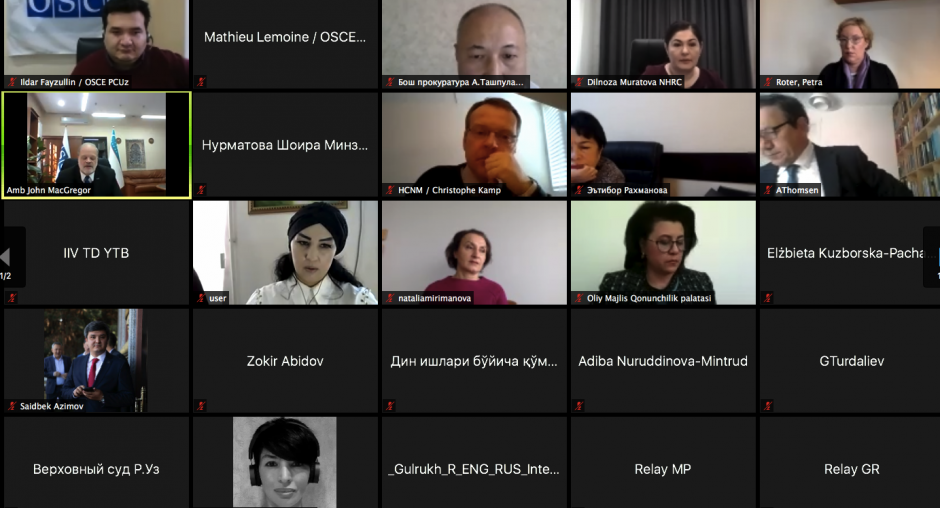OSCE-supported event focuses on Lund Recommendations on the Effective Participation of National Minorities in Public Life in Uzbekistan

On 23 and 24 November 2020, the OSCE Project Co-ordinator in Uzbekistan is organizing a roundtable conference to discuss the main points of the Lund Recommendations and good practices from the OSCE area and Uzbekistan. The National Human Rights Centre of Uzbekistan and the office of the OSCE High Commissioner on National Minorities jointly organized the event.
Experts from the office of the OSCE High Commissioner on National Minorities, international experts and representatives from national authorities are attending the conference. They will share their experiences on OSCE-wide good practices on the effective participation in political life, accommodating diversity through the effective participation in cultural and religious life, an inclusive approach to the socio-economic participation, and on opportunities for and barriers to the participation of minority women.
John MacGregor, OSCE Project Co-ordinator in Uzbekistan, stressed the importance of OSCE commitments related to human rights and freedoms of persons belonging to national minorities. “We should all remember that to belong to a national minority is a matter of a person’s individual choice and no disadvantage may arise from the exercise of such choice. OSCE participating States have agreed to respect the right of persons belonging to national minorities to effective participation in public affairs, including participation in affairs relating to the protection and promotion of the identity of such minorities,” MacGregor said.
Christophe Kamp, Director of the office of the OSCE High Commissioner on National Minorities, said: “One of the most important messages behind the Lund Recommendations is that a meaningful level of representation and participation of minorities in all fields of a country’s public life is vital to foster loyalty to, and trust in, the institutions of the State. This also requires a willingness on the part of minorities to engage: integration is a two-way process”.
